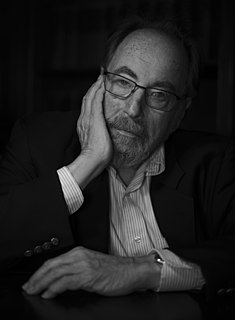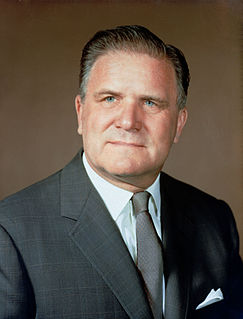A Quote by David H. Hubel
The brain is a tissue. It is a complicated, intricately woven tissue, like nothing else we know of in the universe, but it is composed of cells, as any tissue is. They are, to be sure, highly specialized cells, but they function according to the laws that govern any other cells. Their electrical and chemical signals can be detected, recorded and interpreted and their chemicals can be identified; the connections that constitute the brain's woven feltwork can be mapped. In short, the brain can be studied, just as the kidney can.
Related Quotes
Most of our brain cells are glial cells, once thought to be mere support cells, but now understood as having a critical role in brain function. Glial cells in the human brain are markedly different from glial cells in other brains, suggesting that they may be important in the evolution of brain function.
The brain is really hard to see. The whole thing is very large - the human brain is several pounds in weight - but the connections between brain cells, known as synapses, are really tiny. They're nanoscale in dimension. So if you want to see how the cells of the brain are connected in networks, you have to see those connections, those synapses.
Ours is not a dumb species. We have put a man on the moon. We have unlocked the secrets of the human genome. We have discovered how to take stem cells and coax them into becoming brain cells, heart muscle, liver tissue - any organ of the human body that needs repair. These are our miracles, and there are more. Yet we have not yet found a way to do the simplest things: To live in peace. To stop killing each other when we disagree. To distribute that which is good in life freely and fairly.




































